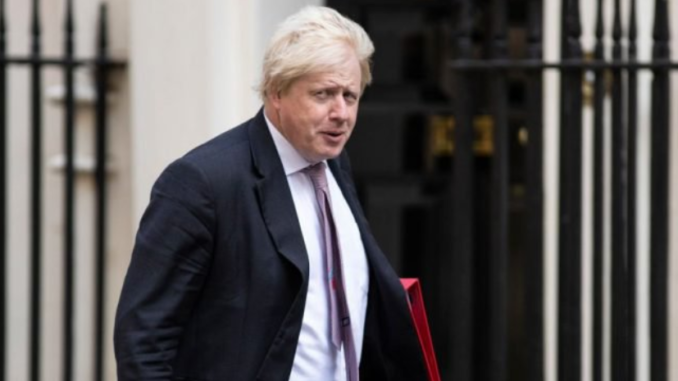
The British Prime Minister, Boris Johnson, rode to No 10 Downing Street on the crest of Brexit. His predecessor, Theresa May, had been frustrated out of office by her inability to take Britain out of the European Union as demanded by a slim majority of voters in a 2016 referendum. Her proposals, about three variations of them, were rebuffed by a majority of elected politicians in the House of Commons. Deal or no-deal, the new Prime Minister vowed to deliver Brexit by October 31, 2019. The success or failure of his leadership hinges on that promise.
The prospect of a no-deal Brexit has generated so much controversy in the Commons. Members of Parliament opposed to that prospect had threatened to force a vote of no confidence on Johnson, thereby compelling the emergence of a new government or an early election. Such an early election, or even another referendum, would highlight a new approach to an issue that has proved to be the most divisive in recent British politics.
There is this fear that exiting Europe without a deal could be catastrophic to British economy and the lifestyles ordinary Britons have become accustomed to. It is also feared that it could eventually lead up to the break-up of the Union. The nationalities constituting Great Britain expressed diverse views in 2016. Scotland, for instance, voted overwhelmingly to remain in Europe. There is the assumption that agitation for its independence could gather momentum with current developments. The anti-no-deal sentiment cuts across party divisions. There are not a few who had voted in favour of Brexit but would want it achieved with minimal consequences to their well-being.
In what would appear as a move towards countering whatever plot opponents intend, Boris Johnson promptly requested the British Monarch, Queen Elizabeth 11, to prorogue Parliament for five weeks, the longest suspension that would be witnessed since the end of the Second World War. Parliament would be suspended sometime in September and reconvene on the 14th of October, about 17 days before Brexit deadline. Opponents believe the prorogue of Parliament was intended to frustrate discussions on Brexit, not least because of its length and timing. However, Prime Minister Johnson explained that the break is intended to enable the government to focus on urgent domestic legislation, an explanation that would seem to have contradicted his earlier pronouncement that domestic legislation would be put on hold until Brexit is achieved at the end of October.
There have been mixed reactions to this new development, ranging from anger from political opponents of Johnson to approval by avowed supporters of Brexit. The move by the Prime Minister is considered to be anti-democratic and dictatorial. Former Chancellor Phillip Hammond expressed his disapproval and wondered why anyone would not want to see why Jeremy Corbyn, Leader of the Labour Party, would like to table a motion of no confidence next week. However, proponents argue that opposing MPs have themselves to blame since they had thwarted the opportunities provided by Theresa May to exit Europe with a deal of some sort.
Not unexpectedly, Donald Trump, the tweeting President of the United States, praised Boris Johnson as the leader Britain needs at this crucial moment. Quite a number of politicians from countries of the European Union do not agree, wondering why the Prime Minister feared debate by elected representatives of the British people on an issue of immense implications for their future. Someone asked this writer why the Queen approved the request to suspend Parliament. The Queen, being a mere constitutional monarch, could hardly have rejected the request of her PM to prorogue Parliament without dragging herself into a constitutional mess. The era of omnipotent monarchy belongs in the distant past.
Be that as it may, the weeks ahead promise to be quite exciting in the British politics .It will be exciting to see how the opposition responds to what would seem to have been a deft move by Boris Johnson to achieve his deal or no-deal exit from the European Union by the 31st October deadline. There is hardly any doubt that new strategies will emerge in the few days before the suspension of Parliament commences, and the decisive days following its reconvening in October. There have been protests here and there, as well as threats of court challenges. The ruling Conservative leadership has warned elected representatives of withdrawal of whips and de-selection if they voted against government proposals. With political emotions apparently running riots, it is only time that can tell what the eventual outcome would be.
END

Be the first to comment